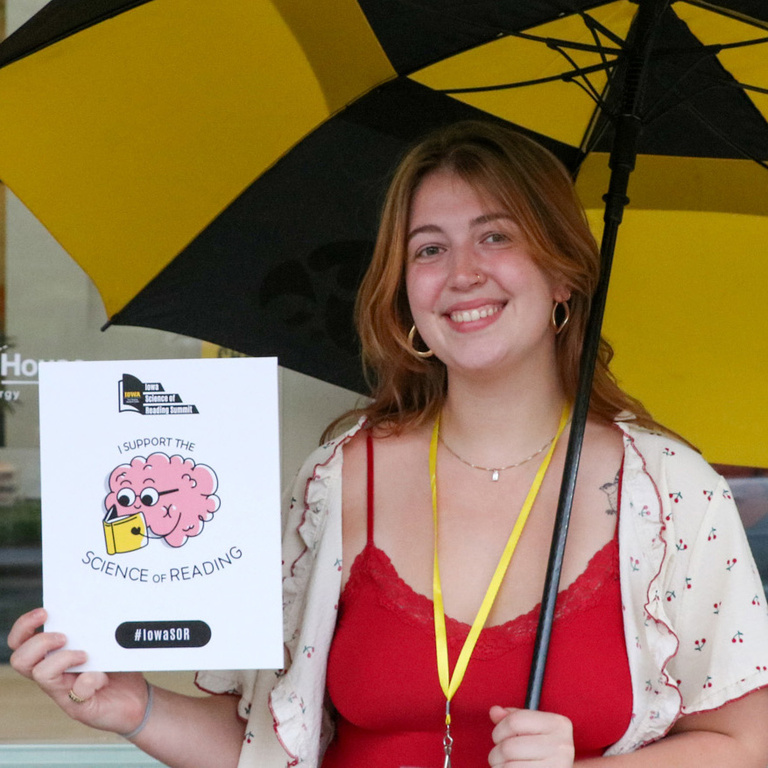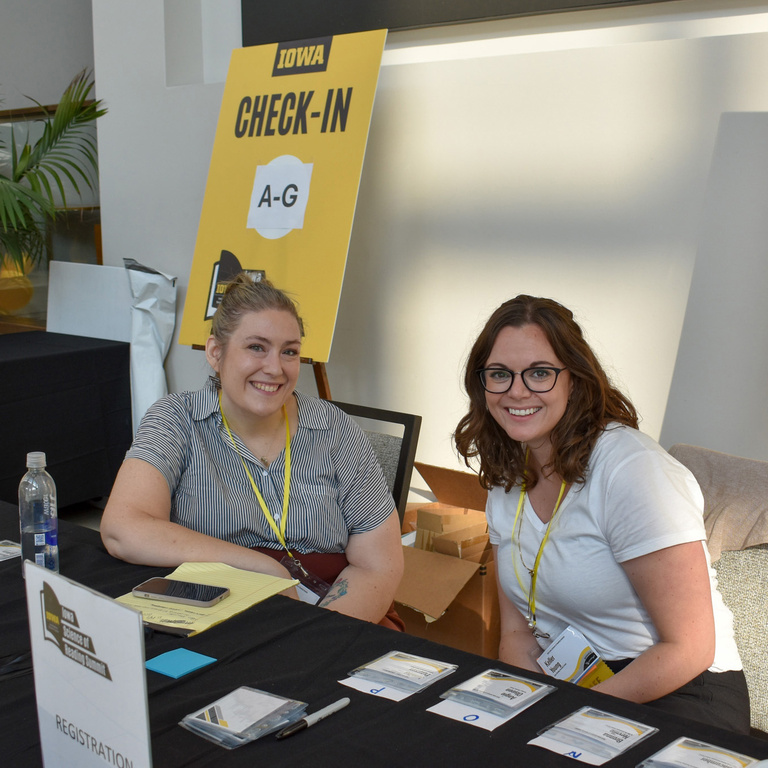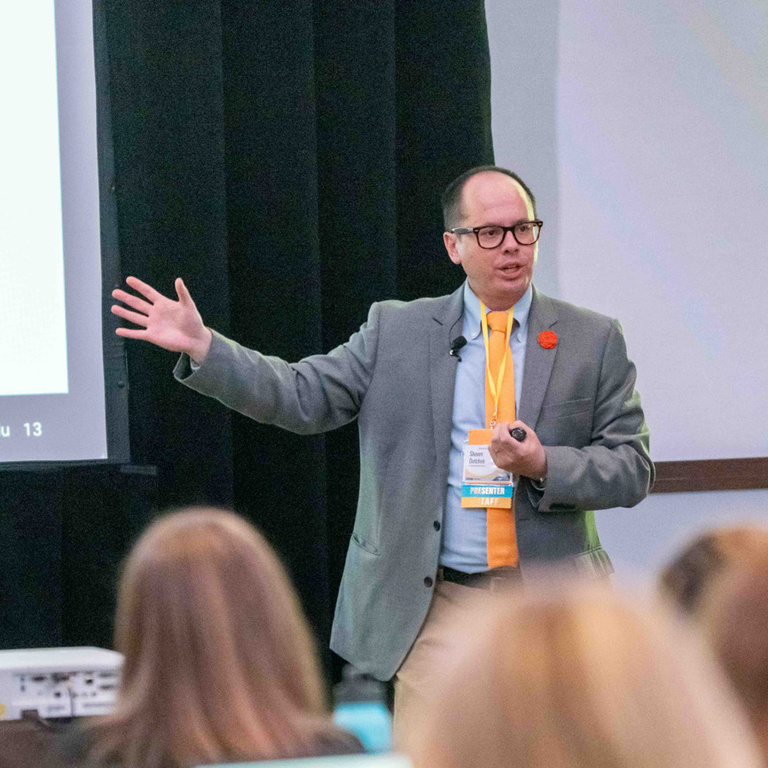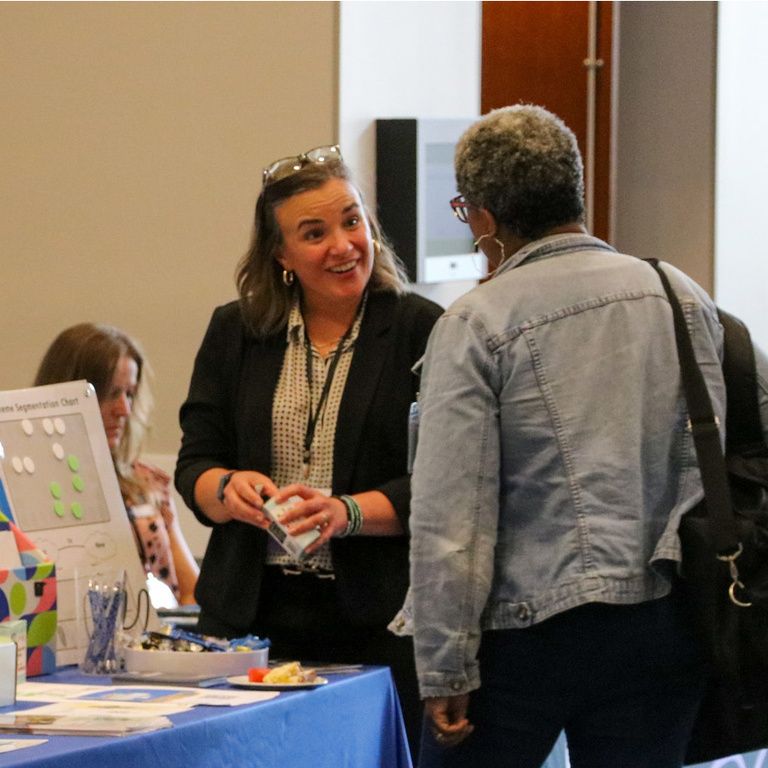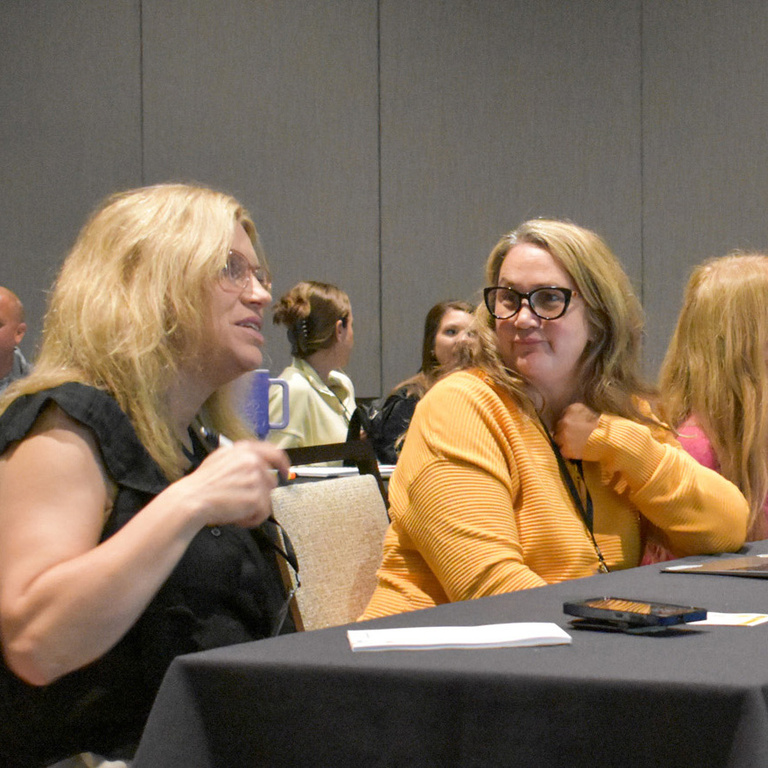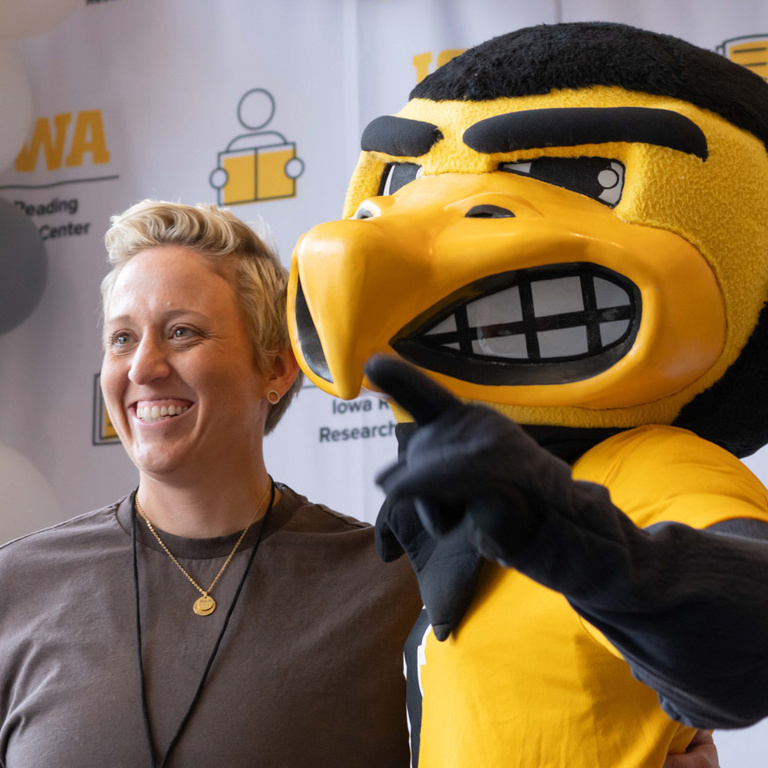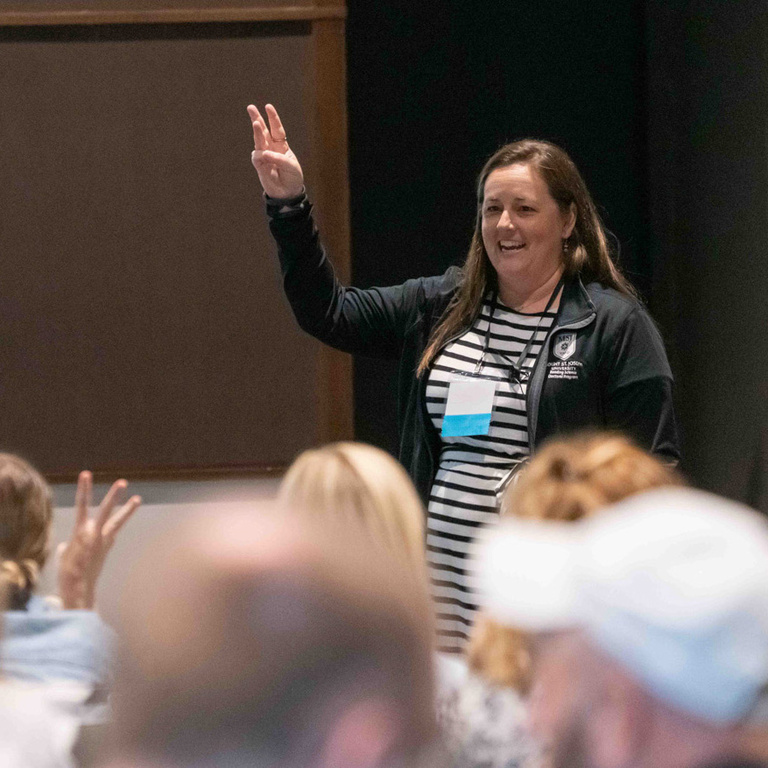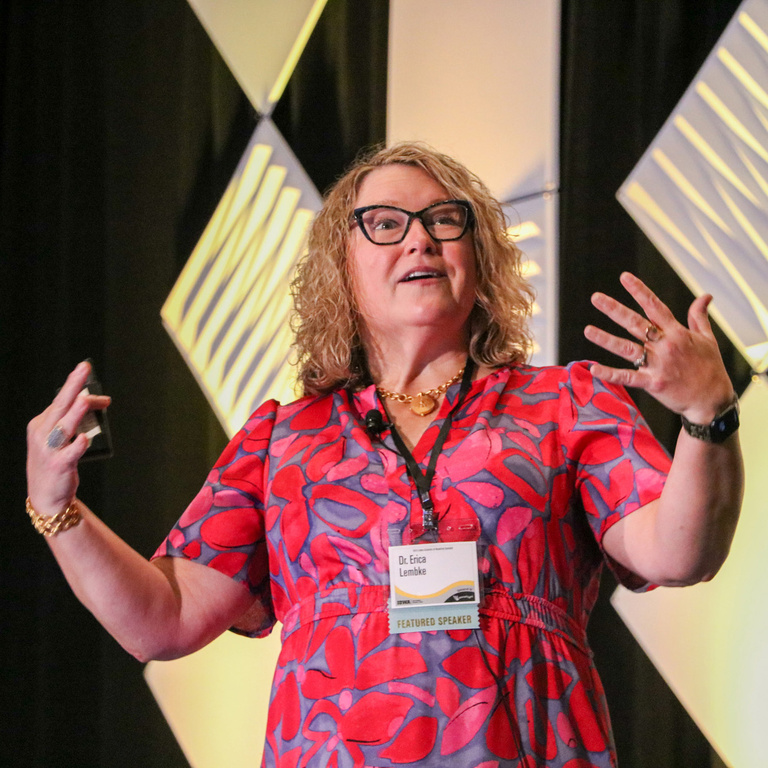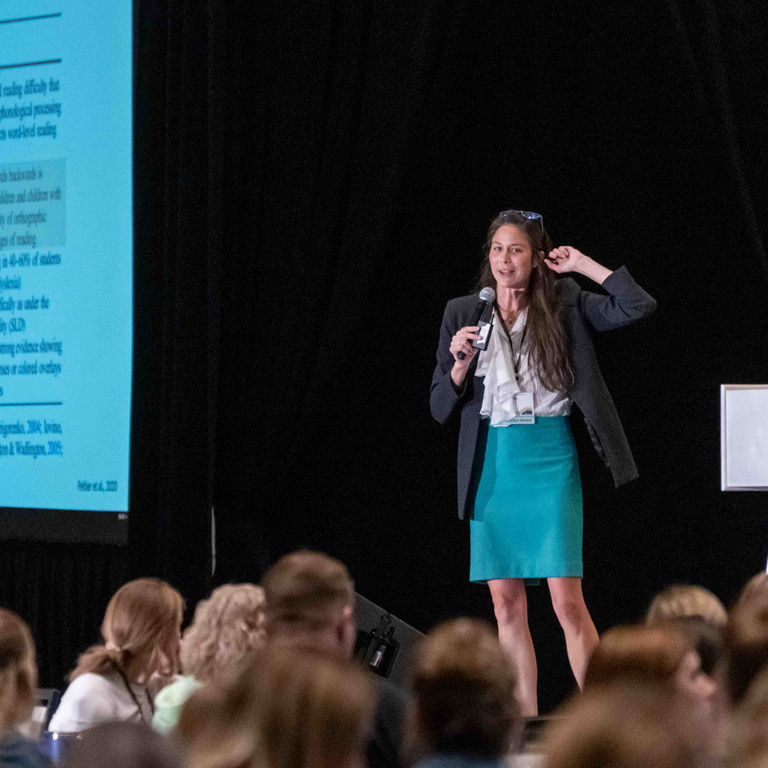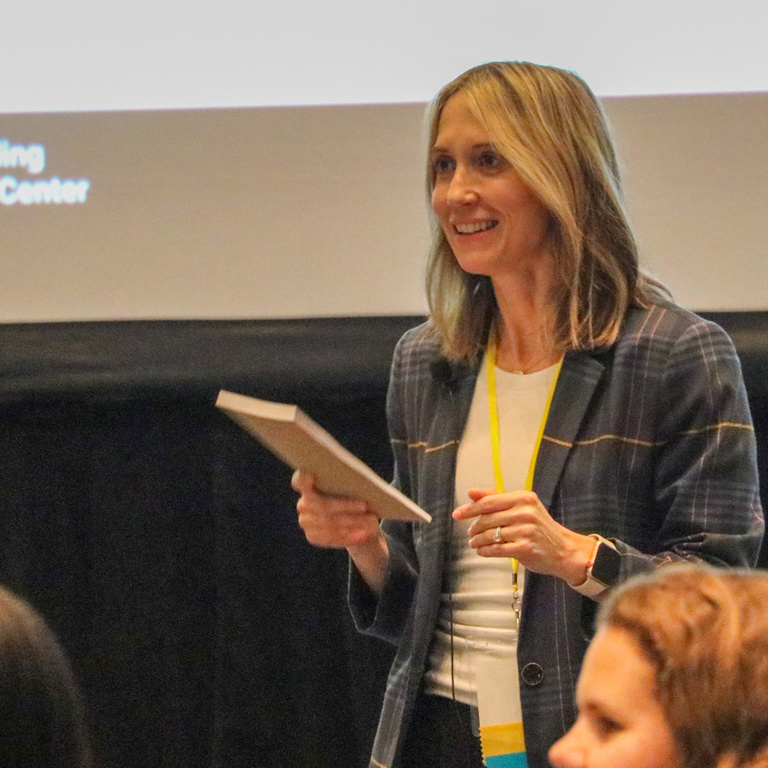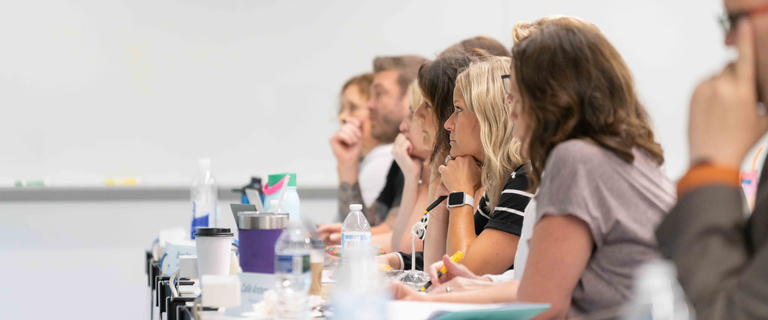What Is the Iowa Science of Reading Summit?
The Iowa Science of Reading Summit gathers educators from across Iowa and surrounding states to expand their knowledge of evidence-based instructional practices and the science of reading.
The summit aims to support student literacy by:
- Cultivating a community of educators who are data-driven, informed on current research, and critical consumers of reading curricula and assessments
- Providing educators with actionable strategies to translate research into practice
Date
The 2026 Iowa Science of Reading Summit will take place June 16–17, 2026.
Location
The summit will take place at the DoubleTree by Hilton, Cedar Rapids Convention Complex, Cedar Rapids, Iowa.
Registration
Registration for the summit will open on February 9, 2026.
Cost
Early-bird registration is $350 until March 31, 2026, at which point it will increase to $400.
Who Should Attend?
This summit is for in-service, school-based personnel (teachers, paraprofessionals, school administrators, district administrators, and AEA staff members) striving to positively impact student literacy.
Why Should You Attend?
- Discover the latest research, resources, and best practices in literacy instruction.
- Learn from leaders in literacy research, instruction, and advocacy.
- Share your knowledge and build community with fellow attendees.
- Speak with representatives from literacy-oriented exhibitor and sponsor groups.
- Gain actionable activities and strategies to implement in the classroom.
Keynote Speaker

Mark S. Seidenberg
Mark S. Seidenberg a professor emeritus at the University of Wisconsin-Madison. He is a cognitive scientist who has studied reading and language for several decades. His contributions span topics including word recognition in reading, learning to read and dyslexia, statistical learning in language acquisition and in reading, the impact of language variation (dialect) on reading, and others. His research utilizes behavioral methods, neuroimaging, and computational (neural network) modeling. His book Language at the Speed of Sight: How We Read, Why So Many Can’t, and What Can Be Done About It kickstarted the “science of reading” revolution in education. His ongoing work focuses on ways to teach reading that are effective, efficient, and equitable.
Featured Speakers

Adrea Truckenmiller
Adrea Truckenmiller is an associate professor of special education at Michigan State University. Her research focuses on reading and writing assessment to inform more effective instructional decisions. She is principal investigator of the Writing Architect—a tool that highlights five high-leverage components of writing and connects to research-based instructional practices. She consults with state and regional agencies to select more useful reading screening assessments. Truckenmiller co-created the Multi-Tiered System of Supports master’s and certificate program at Michigan State University. She has over 40 peer-reviewed publications and $5 million in grant funding. She is on the Florida Center for Reading Research (FCRR) Wall of Fame and has appeared on multiple literacy podcasts.

Matthew K. Burns
Matthew K. Burns is the Fien Endowed Professor of Special Education at the University of Florida and an assistant director of the University of Florida Literacy Institute. He has published over 200 articles and book chapters in national publications and has co-authored or co-edited 15 books. He is the current co-editor of Remedial and Special Education and a past editor of School Psychology Review and Assessment for Effective Intervention. Burns is one of the leading researchers regarding the use of assessment data to determine individual or small-group interventions, Multi-Tiered System of Supports, and facilitating problem-solving teams. His research has been featured in popular podcasts such as Sold a Story and documentary films such as The Truth About Reading. He received the 2020 Senior Scientist Award from Division 16 (School Psychology) of the American Psychological Association.

Jessica R. Toste
Jessica R. Toste is an associate professor in the department of special education and distinguished teaching professor at the University of Texas at Austin. She holds research affiliations with the Meadows Center for Preventing Educational Risk and Center for Research to Community Impact. Her research is focused on methods for intensifying intervention for students with persistent reading challenges and reading disabilities. She is principal investigator on research grants from the U.S. Department of Education, Institute of Education Sciences (IES) and Office of Special Education Programs (OSEP), and the National Institutes of Health (NIH). Toste is an award-winning teacher; she is a member of UT Austin’s Academy of Distinguished Teachers (2025), recipient of the President’s Associates Graduate Teaching Excellence Award (2023), Dean’s Distinguished Teaching Award (2022), and was named one of the 2017 “Texas 10” professors at UT Austin.

